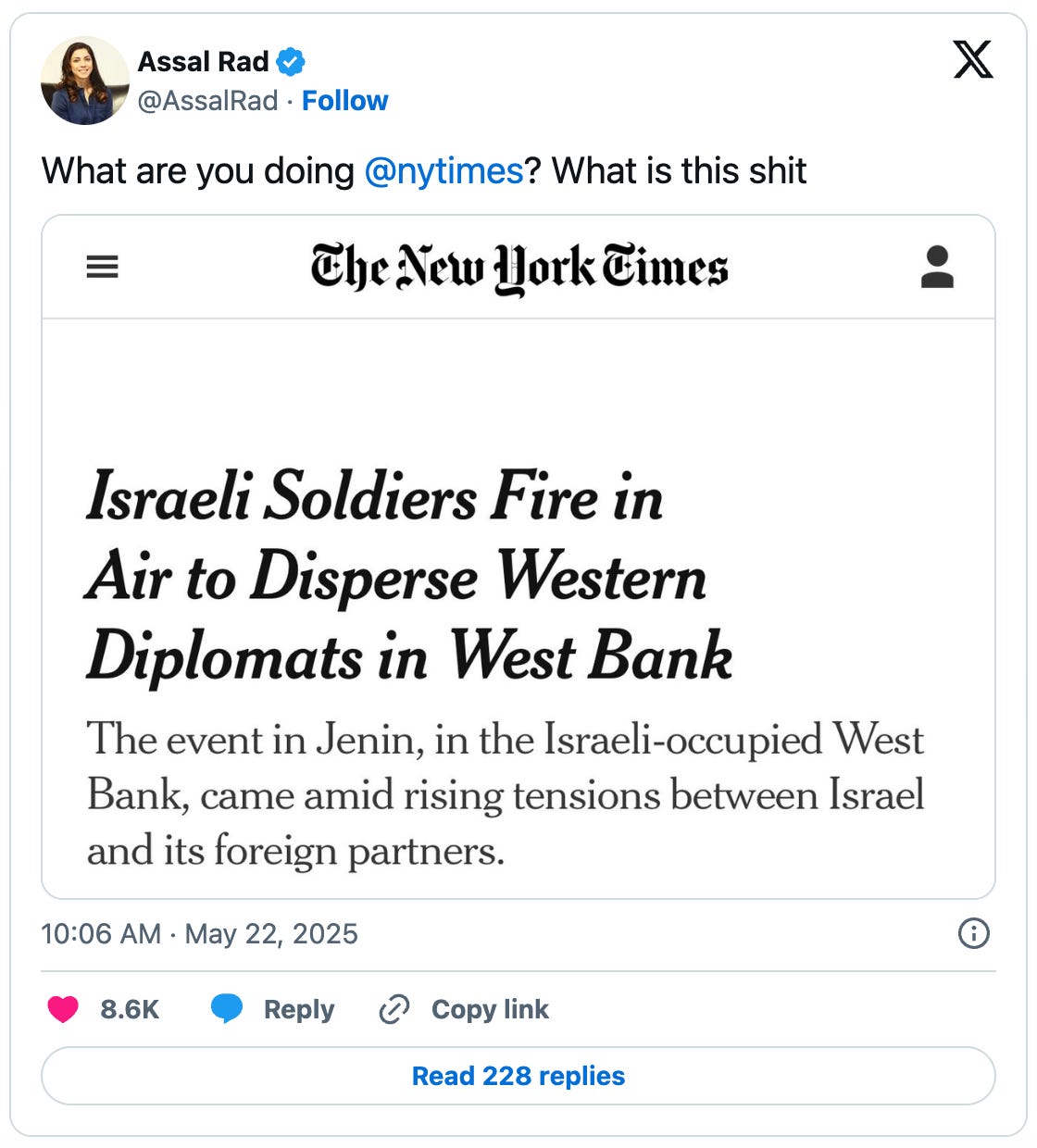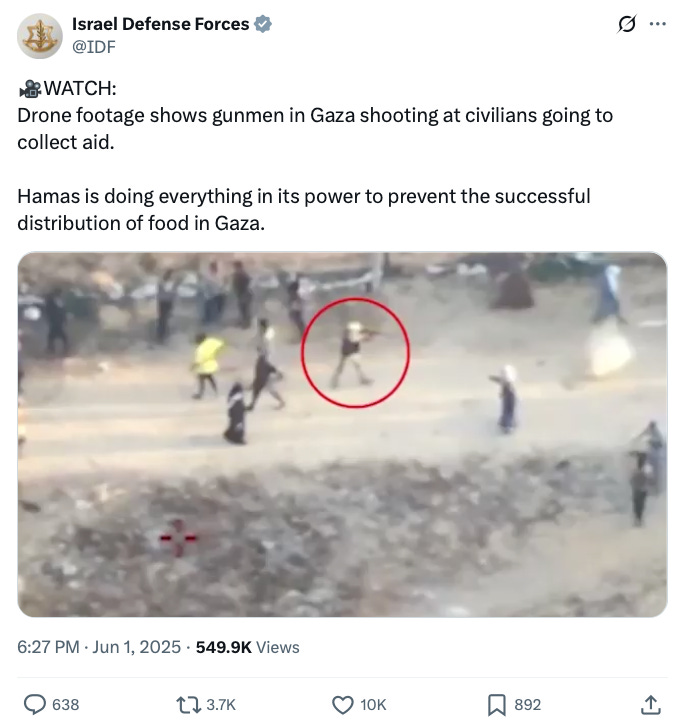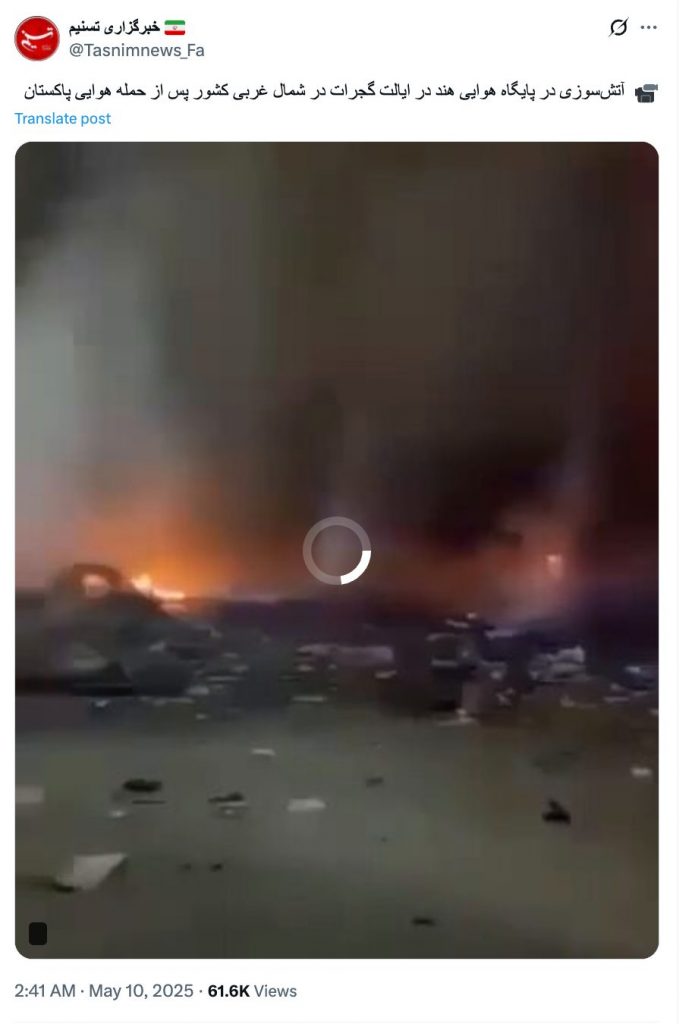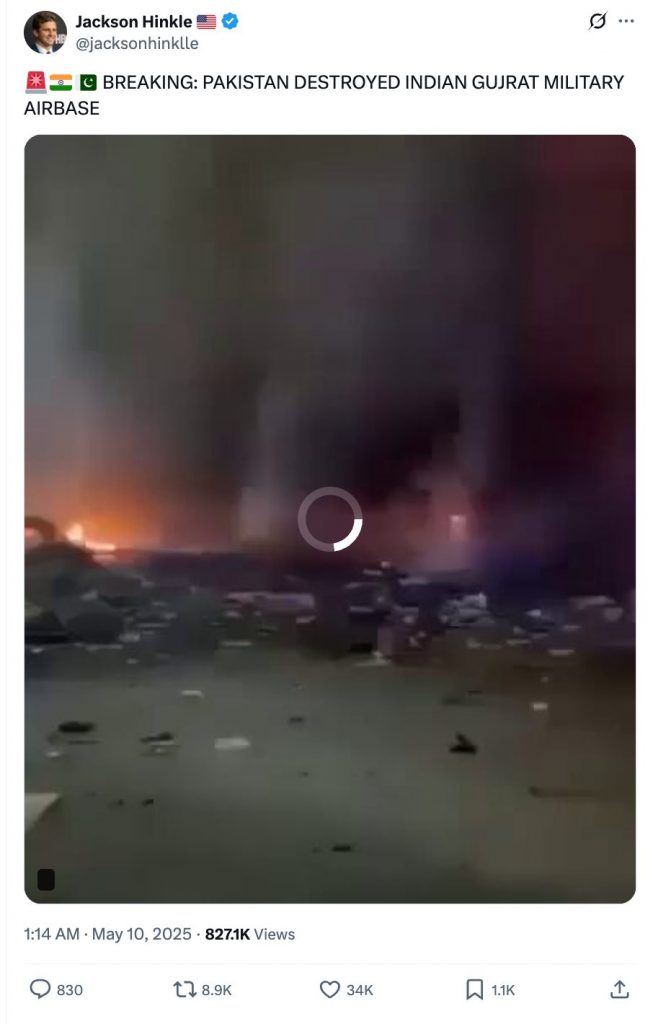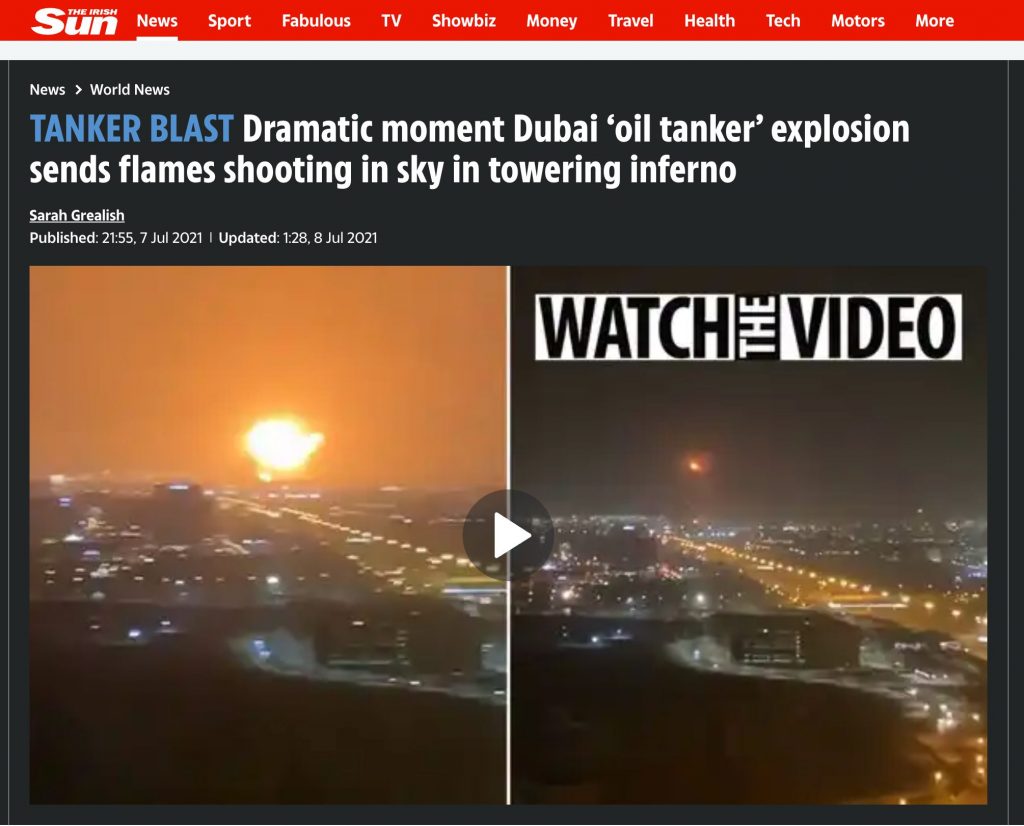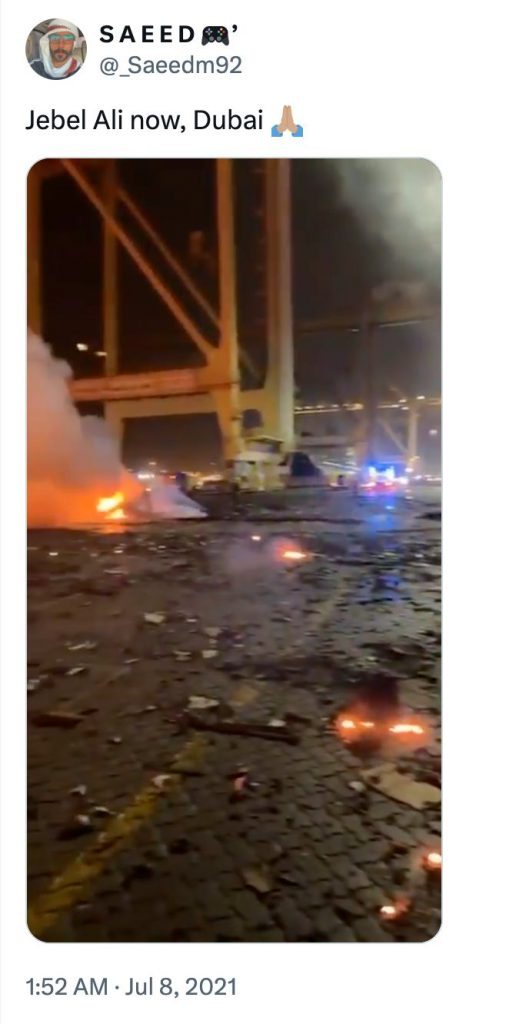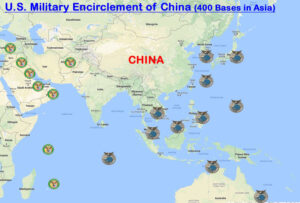
In Danish here for Danish readers.
The development – or decline – of the Danish daily newspaper Politiken as a quality newspaper in the field of foreign policy pains me. Allow me a personal, somewhat nostalgic introduction. I wrote frequently for Politiken from 1971 to 1994. As a 20-year-old sociology student, I was naturally proud to be published in what was then a prestigious, liberal media outlet, which was initially shaped by Hørup’s anti-militarism and cultural radicalism.
In Denmark, there was a – albeit quite traditional but serious and multifaceted – discussion about the state of the world. There was actually quite a lot of room for different opinions, and it was natural that many opinions were expressed and met in the Danish media – creating the social debate that is essential for security, peace and democracy. There were debates on security policy around the country – in folk high schools, assembly halls, upper secondary schools and trade unions.
How I miss that Denmark, which is dead and gone today.
Back then, no one would dream of excluding/cancelling discussions about peace – nor did anyone suggest that Denmark should contribute to the militarisation of the world or participate in wars abroad – no, Denmark should first and foremost be able to defend itself against an attack or if, God forbid, Article 5 of the NATO Treaty should come into force. Denmark was called a ‘footnote nation;’ the principles were upheld that NATO membership was compatible with the country never accepting nuclear weapons, foreign bases, pre-positioning of equipment, weapons and ammunition on its soil, and that Denmark should not participate in NATO’s nuclear planning group.
Those were the days. There were politicians who could both read books and write books – readable ones at that.
And back then, long ago, Politiken was, in my view, the leading newspaper (along with Information, which, however, had less general influence) for common sense, diversity, broad social debate and room for both pro- and anti-military perspectives.
And peace – and futurology, including global perspectives, Club of Rome reports, which I reviewed, etc.
OK, things change over 50 years, of course. But Politiken’s current position on foreign and security policy is not a law of nature. Over time, the owners and editorial managers of the daily newspaper could have chosen to preserve at least some of the soul of what Politiken used to be.
But where does Politiken – which still confidently calls itself ‘the organ of the highest enlightenment since 1884’ – stand today?
For me, with the above background to compare (there are advantages to getting older…), it stands as one of the highest organs of propaganda about other countries and their – Western-determined – role as threats to the fine, pure, innocent Western world. Whether intentional or not, Politiken legitimises and promotes militarism infinitely more strongly than anti-militarism and peace.
Today, it can rightly be called PolitPravda.
My younger readers should know that Pravda was the organ of the Soviet Communist Party; Pravda means ‘the truth’ – and that wasn’t exactly what Pravda contained.
In the areas of foreign and security policy, today’s Politiken runs on what I call FOSI – Fake+Omission+Source Ignorance. The newspaper’s management clearly sees its role as blindly loyal support for the militarism of the American empire – NATO, interventions, bombings, regime change, hatred of Russia – although not necessarily for Trump’s policies or the grabbing of Greenland.
FOSI has been and continues to be practised in the coverage of Syria, Israel, Russia, Ukraine… Palestine. And China, which I discuss further down.
*****
I have just listened to the fifth episode of Politiken’s populist podcast series: Putin – The World’s Most Dangerous Man? The episode is alternately titled The Grand Plan and How He Is Creating a Generation of Ardent Nationalists. Listen here.
It is incomprehensibly trivialising, intellectually lazy and unprofessional, with a few facts and guesswork about, for example, Putin’s daily routines, spiced with the journalist’s personal opinions and ‘assessments,’ interrupted now and then by exclusively US-Western media Russophobic expert quotes, which are concocted into breakneck interpretations of the banal central thesis that Putin is power-mad with his Grand Plan for the re-establishment of the old Soviet empire.
No, dear reader, this is not political satire on Politiken’s humour page, ATS, or elsewhere. These are grown adults conveying this message without any form of analysis or arguments for or against the thesis, based solely on Western mainstream sources. It is blatant Russophobia, entirely in line with the relentless opinion-shaping efforts of the government, the military’ intelligence’ agency, FET, and other media outlets. It is opinion journalism of the worst kind and of no use whatsoever to anyone seeking qualified knowledge.
There are no theories or concepts, and therefore no rigour. It is tabloid drivel at the lowest level of information and limited in its understanding, in that Russia and Putin are not seen as part of the international system or as a partner in a very complex conflict with the cultural West, which all Soviet/Russian leaders since Gorbaechev, also Putin, has stated clearly that they feel their country belongs to. In this presentation, Russia is an isolated entity – only action and never reaction. It is about a Russia that is only itself and in no way navigates the challenges posed by, for example, NATO. At Politiken, Russia is a pariah that can be talked about – and disparaged – however one pleases.
This is the result of 110% groupthink, and there is only one possible attitude towards ourselves and towards Russia (and China). From my own experience, I know that it is impossible to get a response from today’s journalists if you point out that their portrayals are, for example, factually incorrect, biased and lacking in basic knowledge and fairness. Or if the top management has chosen a very specific systematic approach to reporting.
How many times have you seen that this or that country is engaging in dis/misinformation – and that we must protect ourselves against this sedition? We are to understand that it is only the others who do this; we in the West do not engage in such mis/dis behaviour. It is only Russia that threatens us – we cannot in any way be perceived as threatening in the eyes of Russia or China. We have good intentions, but they do not.
Coincidentally, this awful story about the CIA’s activities in China came out at the same time as Politiken’s series. You will not find that story in Politiken.
Thus, nothing is too low, simple or stupidly propagandistic. It would be demeaning to children to describe it as ‘sandbox level.’
This fifth podcast about the world’s most dangerous man is completely uninteresting if you want to know anything about Russia, Putin and international politics – including the invasion/war in Ukraine, which, in NATO agitprop style, is of course and quite foolishly called ‘full-scale,’ which is about the only thing (along with ‘unprovoked’) it cannot be described as. It is simply factual nonsense and should not have made it through quality control. When it does, it is because it is NATO speak, and therefore, there is no professional or ethical problem.
I wonder how far they can go – and how long it will take – before loyal readers of the highest organ of propaganda realise that they are being deceived? When will the Pravda Moment hit Politiken’s readers?
And if it is not deliberate deception, then it is simple ignorance and professional incompetence. A third – entirely hypothetical, of course – possibility is that senior editors at Politiken a little too often have lunch with people from the American embassy and say ‘No, thank you’ if they receive invitations from embassies that do not represent NATO and the EU.
*****
In keeping with the West’s incredible, rapid intellectual decline and impending fall, coupled with its support for armament and militarism, Politiken has also descended into pure propaganda when it comes to China. In an ‘analysis’ a few days ago, it claimed that China is hunting down critics all over the world. Read it here.
In another, the theme is that China has infiltrated the UN and distorts and lies about everything related to human rights. Read it here. These are pure smear articles by journalist John Hansen and the newspaper’s Asia correspondent Sebastian Stryhn Kjeldtoft – who is based in Taipei, Taiwan, and not in mainland China.
China has infiltrated the UN with an army of fake NGOs. Meet the gongos
This is yet another example of how the media sees it as its primary task to write only negatively about China. You hardly ever see anything positive about China and its impressive development over the past 40 years. The classic themes are Tibet, Hong Kong, the ‘genocide’ and ‘concentration camps’ in Xinjiang, Xi Jinping is a dictator – and the system is a dictatorship because it is not a democracy in the Western sense – Chinese researchers, students and agents have stolen everything in the West, China’s military build-up is a threat to the Western world – and then, of course, Taiwan, which, according to Western media, is an independent state (or should be), but is constantly threatened by an invasion launched by Beijing.
On the other hand, you never hear about what the US and the rest of the West are doing vis-à-vis China – and it is not small stuff and is not done on small budgets. TFF and my staff have mapped out this entire media-based Cold War initiated by the West. Read the full report with extensive, concrete documentation here.
Both articles are based on material from an organisation that Politiken neither describes nor provides its readers with a link to, namely ‘the journalistic network ICIJ’ – as if readers already knew what ICIJ stands for, much like NATO or the EU. ICIJ’s website can be found here.
I visited this website on 6 May 2025 and found that of the 13 top articles, 11 are about China – and only about how terrible China is. Several focus on the well-worn story of how China persecutes all Uyghurs. In Politiken, the issue of the Uyghurs in Xinjiang is presented by quoting Zumretay Arkin, vice-president of the World Uyghur Congress, ‘who is fighting for democracy and independence for the Uyghurs, an ethnic minority in the Xinjiang region of western China.’ (My italics).
However, the whole thing is a little more complicated. A very small minority of Uyghurs want an independent East Turkestan and have been trying to achieve this goal for a couple of decades by carrying out around 1,200 terrorist attacks in and outside Xinjiang. The United States and US-backed terrorist movements support them, and the East Turkestan government-in-exile has been based in Washington for 20 years!
Many have been arrested and sentenced to prison or re-education camps in China – and it is certainly no fun to be there. But it is also no fun for China that the United States supports violent separatist movements in its largest province – and that some of these Uighur terrorists have been trained by al-Nusra and have been fighting in Syria for years with the aim of returning to Xinjiang and ‘liberating’ it – a province considerably larger than France and with extensive natural resources, through which China’s new Silk Road project, BRI, involving 140 countries runs.
But in Western media and political propaganda, the terrorist element of this is never mentioned; it is simply that China persecutes Muslims in general and Uighurs in particular. Because remember: this was said by Trump’s then-Secretary of State Mike Pompeo – a habitual liar and former CIA chief who has himself said that he is proud to have trained CIA agents to ‘lie, cheat and steal.’ On his last day at work, he left a ‘statement’ saying that what was happening in Xinjiang was genocide. Full stop. To date, the State Department has never backed this up with any form of documentation. But TFF has documented how this outright lie has come about, how it is part of the US media’s Cold War against China, and here you can read a report from Xinjiang, which I co-authored.
People who have no idea what social analysis or journalism is – but have a political agenda – have since promoted the lie, the fake and omission. Whether they know what they are doing or are simply ignorant, I will leave unsaid – but neither is particularly honourable. And the very same media and politicians are simultaneously concealing the actual Israeli/Zionist genocide and ensuring that it is not stopped. The US and its media allies are – once again – at the centre of moral decay.
Back to the ICIJ website. The ICIJ’s ‘Our team’ consists of 42 journalists; no less than 25 of them are listed as ‘United States,’ and it is indeed in Washington that the organisation has its headquarters. The chairwoman of the board, Rhona Murphy, has worked with a number of leading conservative American media outlets.
And who finances the ICIJ – which Politiken’s source-uncritical China smear campaign chooses not to reveal to its readers in the two articles? Well, as I thought – yes, I have a nasty mind: A long list of government organisations, foundations and funds in NATO countries, in the West in general – none outside. See the list here.
Three stand out: the EU, the US State Department and the usual suspect, NED – The National Endowment for Democracy, which is indisputably well known as a front organisation for the CIA. There is hardly a US regime change where NED has not pumped money into NGOs to carry out colour revolutions, etc. The organisation was created by Ronald Reagan, and a former NED director has stated that most people would not want to accept money directly from the CIA and that NED appears less controversial as an NGO.
As I write this article, Politiken publishes another smear article on 6 May and an editorial by Marcus Rubin – a law graduate, former US correspondent for Politiken and now feature editor and member of the editorial board – with the cultured, journalistically objective headline: “China’s oppression is both lawless and boundless. It makes for frightening reading about an extremely powerful dictatorial regime.”
A taste:
It makes for frightening reading about an extremely powerful dictatorial regime whose power is spreading both in Asia and throughout the rest of the world, and which will stop at nothing. The goal of the campaign of repression is to stifle any criticism of the regime in Beijing by persecuting, subjugating and destroying its critics – wherever they may be. The Danish Security and Intelligence Service (PET) acknowledges the problems and assesses that China is also ‘attempting to exercise control over Chinese people in Denmark to a large extent.
Not a single fact, not a single example, not a single piece of evidence. No documentation. It is as if Rubin asked an AI machine to ‘Write some shit about China.’
The third article in the “highest level of information” about China appeared on 28 April with this sober headline: “Eric compares his former workplace to the Gestapo.” And the introduction reads:
Chinese people who criticise the Communist Party are hunted down all over the world. Now one of the regime’s former manhunters, the spy “Eric”, tells his story in Politiken. For 15 years, he helped spy on and plan the kidnappings of dissidents, even though he secretly hated the Communists. Now Eric himself has become a victim.
Like the other articles, the story is accompanied by a tasteful illustration of this type and begins:

We meet “Eric” at dusk in an anonymous car in a secret location in Australia. He fumbles with the video camera, nervous that some detail in the background might reveal his location. He knows better than most what China’s hackers are capable of. Eric is convinced that his life is in danger. That is why Politiken does not publish his real name…
So we are simply expected to believe Politiken: that this is objective journalism and not Sinophobic propaganda in the service of the US/the West. China’s intelligence service is like the Gestapo, and so you know that President Xi Jinping is like Hitler. And – surprise, surprise! – it is emphasised that the Chinese embassy has not responded to Politiken’s smear campaign.
What Politiken naturally never covers is the positive development in China, for the people in general. That, according to the World Bank, 700 million people have been lifted out of poverty in record time. That the country has developed from a poor and dirty underdeveloped country 40 years ago to being the world’s most successful welfare state today, with a super-modern infrastructure, where people have access to education, health, employment, culture – and where incredible resources have been invested in research and development. Unique in the history of humankind.
Would Politiken kindly publish the figures from the American Edelman Trust Barometer, which show that, year after year, China is the country in the world where the largest proportion of the population has trust in its government. The figure is around 90%; the corresponding figure is 30, some higher and some lower for many in the ‘democratic’ West.
Would you kindly explain in an editorial how on earth it can be that over 120 million Chinese leave China every year to travel to the rest of the world and 99.999999% return and would not dream of settling permanently anywhere in the Western world. Oh yes, Marcus Rubin, they have all simply been completely brainwashed, haven’t they?
I wonder if Politiken can find a single Westerner who has travelled around China as a tourist on their own for just 14 days and returned home with the same attitude towards China, the Communist Party and the population as Western racist US/NATO agitprop media continue to have in the current Yellow Peril hysteria, which Politiken also shamelessly and ignorantly promotes with its smear campaigns?
I am not saying that various media outlets should write hallelujah articles about China. Journalism should never be about conveying a solely positive or solely negative image. It should be about being curious, being fair and conveying facts that are useful for the highest level of public information.
Politiken simply does not do this. Or it prefers its agitprop role.
*****
Politiken’s writers make a big deal out of the fact that China has so-called ‘gongos’ – governmental non-governmental organisations, i.e. government-controlled/influenced NGOs. That is absolutely correct. But it does not occur to them that the ICIJ – and tons of Western NGOs – are wholly or partly funded by their governments and therefore, in practice, also have a restricted mandate and become near-governmental. It does not occur to them – because they have hardly investigated it, as they are uncritical of their sources as long as the message is anti-China (sinophobic) – that they are promoting claims without documentation from the ICIJ, which is partly funded by the US government, including the NED…CIA.
Even less – one would hope – does it occur to them that they are helping to legitimise armament and increase the risk of actual war between the US/NATO and Russia and/or China. All false threat scenarios have that consequence.
If Politiken is the organ of the highest information, the lights have gone out on the Danish mass media scene. The articles I have reviewed here are so journalistically poor and so propagandistic that it is far more accurate and relevant to compare Politiken with the old Pravda. (I am only talking about foreign and security policy areas – not about Politiken as a whole).
Which reminds me that one of the most unique bridge builders between Russia, Ukraine and the United States, Edward Lozensky (1941-2025), has just passed away. Read about him here. Among many other things, he is known for this spot-on description of reality – that of the Western world – which only causes me pain in my heart:
“The Americans are busy
turning their country into the Soviet Union.
And they don’t even realise they’re doing it.”
This does not only apply to the United States. It applies to the entire Western world. It applies to Denmark. And to PolitPravda.
The post
Danish Politiken Smears China Based on CIA, US, EU and NATO Funded Sources first appeared on
Dissident Voice.
This post was originally published on Dissident Voice.







